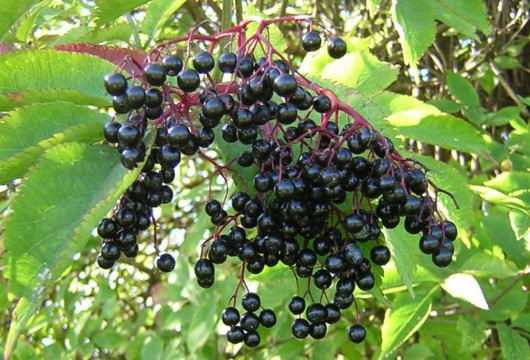Elderberry Juice Side Effects – Can You Drink Too Much Of It?
Checking for the safety recommendations and possible side effects of any juice is important before drinking large quantities. Elderberry juice has a few special characteristics that its users should know about.
Parts of the Elderberry Plant
Some parts of the elderberry plant, such as the stems, roots and leaves contain cyanogenic glycosides. These are substances that release the poison commonly known as cyanide. While these parts of the plant are not safe to consume, the berries themselves can be eaten raw or cooked. Elderberry juice that is prepared from cooked berries is generally safe and free of side effects. No standard safety level for use has been established.
Uncooked Berries and Gastrointestinal Effects
Uncooked berries can be used to make juice, but its use may lead to nausea, vomiting and diarrhea. Elderberry juice side effects are particularly pronounced with the use of unripe fruit.
Diuretic Effects Is One Of Possible Elderberry Juice Side Effects
Because of their tendency to promote the loss of excess fluid, elderberries could potentially cause dehydration and electrolyte imbalance. This is probably only a risk if used for long periods and in large amounts.
Hypoglycemia
Since it is known to reduce blood glucose levels, elderberry juice should be used with caution by those who are at risk of experiencing low blood sugar. This includes diabetics who use oral medications or insulin to control their glucose levels.
Neurological Effects
Uncooked berries may cause numbness and altered sensation. When used as a laxative, raw elderberry juice side effects can include dizziness, light-headedness and stupor.
Special Considerations
Elderberry is known to boost immune system function. People who suffer with autoimmune diseases such as lupus, rheumatoid arthritis or multiple sclerosis should avoid using it as it could make symptoms worse. It is not clear whether elderberry juice is safe during pregnancy and breast feeding. For safety, its use is not recommended for pregnant or lactating women. Long-term consumption of the juice has not been studied. It is believed to be safe when used for up to five days.
